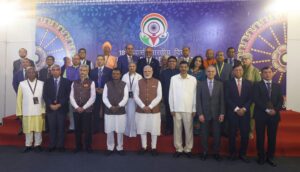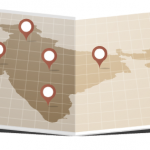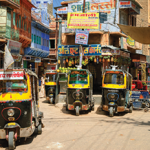 Sharad Lakhanpal, MBBS, MD, Receives India’s Highest Honor for Overseas Indians
Sharad Lakhanpal, MBBS, MD, Receives India’s Highest Honor for Overseas Indians
In early January, Sharad Lakhanpal, MBBS, MD, MACR, FACP, a rheumatologist at Rheumatology Associates in Dallas and past president of the ACR, was one of only three Indian-Americans to receive the 2025 Pravasi Bharatiya Samman Award (PBSA). The award is conferred every two years to non-resident Indians in recognition of their outstanding achievements both in India and abroad. PBSA recipients are selected by a jury-cum-awards committee chaired by the vice president of India, and are from a wide variety of disciplines worldwide.
Dr. Lakhanpal was also one of only two physician recipients. He traveled to the Pravasi Bharatiya Divas Convention, held Jan. 8–10 in Bhubaneswar, Odisha, India, to accept the honor. Prime Minister Shri Narendra Modi spoke at the convention, and on Jan. 10, President Smt. Droupadi Murmu presented the awards.
“I knew I had been nominated,” Dr. Lakhanpal says, “but with the enormity of selections from fields including business, education, science and technology, medical science, politics, IT and consulting, community service and public affairs, it was an awesome feeling, very humbling,” to be included as a recipient. Only 27 non-resident Indians from 24 countries were selected for the honor. Over 35 million Indians are expats of the country, which has the largest global diaspora in the world.
Dr. Lakhanpal came to the U.S. in 1980 after first earning his medical degree from King George’s Medical College, University of Lucknow, India, and then completing his internal medicine training with the U.K. National Health Service. He completed an additional internal medical residency at Memorial Hospital, University of Massachusetts Medical School, Worcester, and his rheumatology fellowship at the Mayo Clinic, Rochester, Minn. In 1986, he accepted a faculty position with the University of Texas Southwestern Medical School and moved to Dallas. Dr. Lakhanpal has consistently been involved with the ACR, serving as a member and chair of many committees and on the Board of Directors. He was president of the ACR in 2017. Prior to that, he also served as president of the American Association of Physicians of Indian Origin (AAPI) from 2003–04 and, in 2023, became an Asia Pacific League of Associations for Rheumatology (APLAR) Master.
The Pravasi Bharatiya Samman Award was an enormous honor, he says. “It’s a great feeling, when you get called back home and they recognize your excellence of achievements in your field.”




